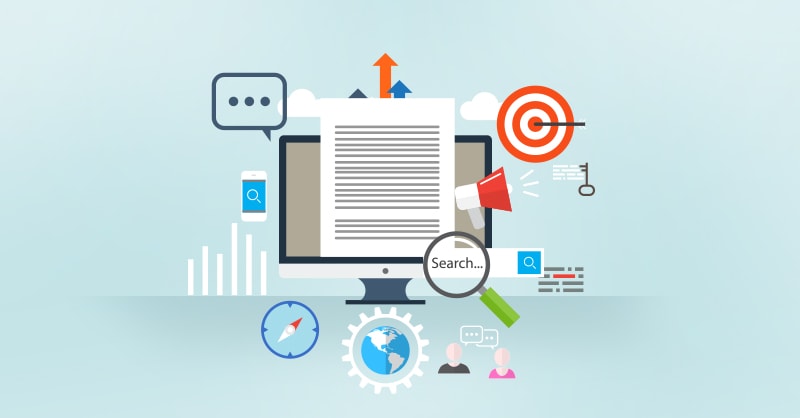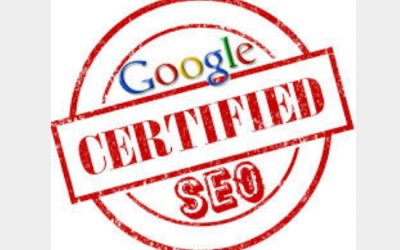PPC or SEO: Which is Better for Your Website?
Your website is ready, and you now wish to see a steady flow of visitors to showcase your goods/services and people who potentially buy from you. Which channel will work best for you and help you get better converting leads & traffic – Search Engine Optimization (SEO) or Pay Per Click (PPC)?
For those of you who prefer watching the video, click below.
This is a crucial question that every business owner has when they set out to market their site. The simple and straightforward answer though is that “It depends”.
Here are a few things you should consider.
– How soon or how fast do you want to see traffic to your website?
– Your budget
– Strength of competition
– Content & Tech
– Your target audience demography & their likes, interests, etc
Let’s break it down
1. If you wish to get immediate traffic to your website
Paid advertising or PPC wins hands down here. You could use Google Adwords, Facebook, Twitter or Linkedin ads to immediately start sending visitors to your site and see how users are engaging or converting on your website.
2. Budget

In general, for most industries, in the long term, SEO has a much lower cost of acquisition and sends in a higher quality of users compared to paid. Of course, it also depends upon the skills of the business owner/marketer who is running your campaign, but generally, we have found SEO to be a more sustainable source of traffic compared to paid.
One has to also remember that when you pause your paid campaigns, the traffic immediately goes to zero, but with SEO, your traffic will sustain and gradually reduce depending on how aggressive your competition is.
All said and done, ultimately it depends if either SEO/PPC gives your business a positive Return on Investment (ROI). At our agency, we generally recommend clients to run both SEO and PPC campaigns at the start of a project as PPC starts sending your site immediate traffic while SEO may take anywhere between 3-6 months to start seeing results.
Reducing PPC costs gradually over time and reinvesting it into SEO is also a strategy that many businesses opt for once their site starts gaining authority and ranking for their business keywords.
3. Your competition strength

If you are up against competitors who are heavily invested in both SEO & PPC and if you are the late mover in an already saturated space, then you need to choose your battles carefully.
Bidding on extremely competitive keywords with high CPC on Google will very quickly drain your budget. You can opt for this strategy if it is a high ticket item that covers your cost.
Else we suggest going for low competition keywords or finding a niche, sub-niche within your vertical that your competition might not be targeting or may have overlooked. This is true for both SEO and PPC.
As a business owner, you have a couple of options – Undergo the learning curve by yourself, test the waters, try SEO, PPC for yourself and gain the knowledge of running ads, doing SEO.
Self-learning may help you learn a thing or two, but it does have its downsides. If you don’t know what you are doing, you may quickly exhaust your PPC budget, or on the SEO front, you may end up wasting a lot of time focusing just on generic keywords rather than strategic keywords for which you might have a likelihood of ranking for.
The second choice is to enlist the help of a specialist digital marketing agency or consultant who can run the campaigns for you. They should be able to help you understand a rough estimate of your competitor spends, how much you might end up paying per click, etc.
If they have worked in the same niche before, some agencies could also give you a rough estimate of how much a lead could end up costing. In most cases, the conversion value of a lead can only be determined after the start of the campaign.
Every type of business is different. When clients come to us, we usually understand their space and then suggest if they should go DIY or enlist the help of an agency.
4. Content & Tech

It goes without saying. If you don’t have resources for content or tech, then PPC will be much better than SEO.
A successful SEO campaign comprises of a lot of moving parts – You need to have a well-optimized website, regular high-quality content updates & need to produce content that people would want to link to.
This could be achieved either with inhouse teams or outsourcing to an agency. But if your business is at a stage where it can’t invest in tech and content, then PPC is a much better option to go with since it is more of a plug and play.
You might require a handful of well designed, conversion-oriented landing pages and you could start the campaign right away.
5. Your target audience demography and their likes, and interests
As mentioned earlier, we have seen that over a longer duration of time, SEO tends to convert better than PPC.
But you also need to consider your target audience demography and interests before deciding on SEO and PPC.
For example, an event at short notice or a mobile phone launch would garner more visibility via paid social media ads and influencer marketing while SEO will have a minimal role to play.
Another example can be, a business trying to sell the idea of old age homes to people in the age groups of 50-60 is likely to perform better on Facebook ads compared to Google where demographics and interest-based targeting might not be at the level of Facebook.
Similarly, highly competitive niches like insurance, fashion, etc. see heavy bidding and can be unsustainable for many small businesses in Google Ads. SEO even though competitive, can yield better results over the long term.
So to answer the ultimate question- Should you go with SEO and PPC?

Here is what we advise clients – If you have the budgets, run both in tandem. PPC will give you immediate traffic and also give you critical insights into which keywords lead to engagement or conversions.
These can be helpful even for your SEO campaign. Over time, you could move your budgets to SEO, depending on the success of your PPC campaign.
If you don’t have the resources in terms of tech, content, then PPC is a much better option to go with. Again you need to be careful with the channels you choose. Google Ads, Facebook, Instagram, Linkedin ads are all options you could consider depending on your business type.
If you are a small business owner with local business, then you could initially ask a specialist agency to set up your PPC campaign and then learn digital marketing to manage it yourself.
For most national or global businesses, you should either get expert help or hire someone inhouse to run campaigns because digital marketing is an ever-evolving space and in competitive niches, you require experts who can do a lot more research and analysis to run your campaigns.
Ultimately the choice to adopt PPC or SEO as part of a business’s overall marketing initiatives lies in the value add they bring in.
Your best bet would be to carry out a comprehensive analysis of your target demographics, analyze your competition and their strategies, see where your business stands compared to competition, how much are you willing to spend (risk analysis) and then take a call whether you may want to focus on just one channel or carry out your initiatives in tandem.

